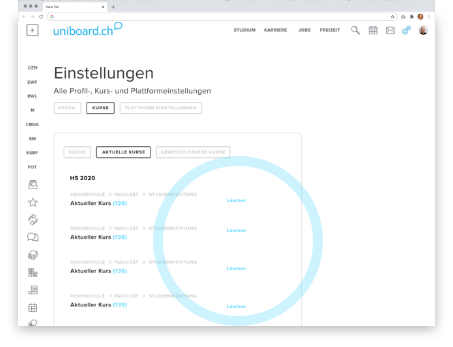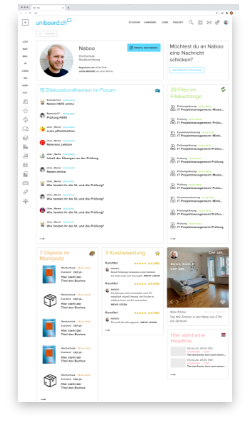




Take your first steps towards the future —
We are here to help
What We Look For
Having your degree is only a start. What will you make of it? We're looking for people who show vision, enthusiasm and leadership. Raw intellectual ability is important, but so are curiosity and an aptitude for problem-solving. Our employees have a wide range of experiences, interests and degrees, but they all share the desire to achieve excellence. Whatever your background, we're looking for:
- Leaders who engender loyalty, assume responsibility and mobilize others
- Critical thinkers with excellent problem-solving skills
- Self-starters who achieve significant results
- Adaptable team members who can build and support strong relationships
- Communicators who are skilled in articulating and listening
- Principled contributors who are committed to the highest standards of ethical behavior
Recruiting Tips
Do you need some guidance on how to write your resume or CV and cover letter, how to prepare for interviews, and the proper way to respond to a job offer? Read our useful tips to help you put your best foot forward.
Your Resume / CV: Form
Your resume or CV is the formal document that describes your skills, accomplishments and interests. It's also your marketing presentation. Be sure it's accurate, up-to-date and competitively positions you as the best possible candidate. Here are a few tips on form:
- Use an easy-to-read conventional typeface, such as Arial or Times New Roman
- Double-check all your contact information
- Check grammar, tenses, parallel construction and formatting errors
- Use active voice and action words such as: Directed, Developed, Managed, Performed, Led, Headed, Created, Coordinated, Produced, Researched, Identified.
- Keep it to one page
- Ensure your resume or CV is in the required format for uploading [.doc, .rtf, .pdf, .jpg]
Your Resume / CV: Substance
Your resume/CV describes you and your achievements in three areas:
1. Academics
This is a concise description of your academic career, including coursework and extracurricular activities that demonstrate leadership and cognitive skills. Here, you will include:
- Universities or institutes you've attended
- Dates of attendance in reverse chronological order
- Your qualification or degree
- Courses of study as they relate to the position
- GPA or expected grade (overall and in your major)
- Other scores
- Scholarships, other awards and accomplishments
2. Experience
We are interested in your activities that demonstrate skills and personal development. This includes:
- Relevant jobs, internships, school activities and volunteer work
- Dates of employment or activity in reverse chronological order
- Brief description of each job
- Relevant metrics that demonstrate your rank, your results or your leadership
3. Personal
Information about who you are beyond school and work helps recruiters see you as a multi-faceted person with capabilities that may transfer to many areas of the bank. This is an opportunity to list "soft" skills and aptitudes such as:
- Interests and hobbies
- Talents
- Language skills
- Relevant technology proficiencies
- Travel experiences
The Cover Letter: A Method of Engagement
The cover letter is a brief introduction to you and includes a specific reason why you believe you're qualified for a job at Credit Suisse. It complements your resume or CV, but doesn't repeat the details. And, it's an additional chance to differentiate yourself from your peers by describing why you should get the job. You can use the letter to demonstrate your knowledge of the industry, the bank and the position you are applying for, and to explain why you are interested in the role to which you are applying. Keep it at two or three paragraphs: that demonstrates how concisely and accurately you convey information, and how successfully you can engage interest.
The Interview Process
The interview is an opportunity for you and the bank to learn more about each other. During the first-round interview, you'll spend up to an hour with an interviewer who will ask questions to help determine your competencies, knowledge and potential for success. If invited back, the second and third rounds will focus more keenly on the area of business in which you're interested, and may include an assessment test (depending on region).
While you can't predict the course of the conversation, by preparing ahead, you'll be able to present yourself with confidence. We recommend these steps:
- Attend an on-campus presentation before your interview, and follow up with questions
- Bring several copies of your resume or CV, printed on neutral-colored, high-quality paper.
- Come to the interview with knowledge of what the bank does and a list of questions about how and where you might contribute your talents
- Stay focused on the areas you specifically want to know about, and ask at least three questions about the area in which you think you might like to workAsk questions about the daily routine of the
It's a good idea to also prepare macro questions about the markets in which we work, or questions that show you're current with world financial/business events. A couple of examples are:
- Where is Credit Suisse innovating products or services and why?
- Which emerging countries are presenting the most promise or challenge?
If time allows, ask holistic but specific questions about the bank-our values, corporate responsibility and our thought leadership.
- How does Credit Suisse differentiate its culture from other banks?
- What are some of the key elements in the bank's corporate responsibility program?
- How do employees become involved in the bank's various initiatives? Making a Good Impression
Make a first Good Impression
Make a first good impression by looking like you already work here - from arriving in business attire, to greeting each of your interviewers with a professional and friendly greeting. See what our recruiters look for in our candidates.
Follow Up
A crucial part of any interview is the impression you leave on the interviewer at the end. You'll do this by asking relevant questions that show your aptitude for and interest in the job, and following up with thanks and affirmation that you're ready to explore next steps.
Final Advice
If there are any points in your resume or CV that you can't speak about persuasively and knowledgeably in an interview, leave them off.
Ensure your attachments are less than 512 KB, and in any of the following formats: .doc, .rtf, .pdf, .jpg or .txt.
Do a mock interview with a friend or adviser, who can give you an honest assessment of your composure and ability to deliver information. Be prepared to give real examples of how you met a challenge, solved a problem, worked collaboratively or initiated a project
- Articulate the benefit you brought to the project or your team
- Be honest about your contributions and abilities
- Relax and be yourself. The interviewer wants to make the best match possible for the firm and you. The more he or she sees of you, the richer the conversation--and the results--will be.
The Offer
Should you receive an offer, you'll want to inquire about timing, reporting structure, and other initial expectations. You may also want to ask additional questions about the culture of working at Credit Suisse. These are all discussions you may initiate with recruiters, alumni or others working in the sector.
Should you be fortunate enough to have more than one offer, it's good protocol to make a decision as soon as possible so that the bank(s) may consider other candidates.



